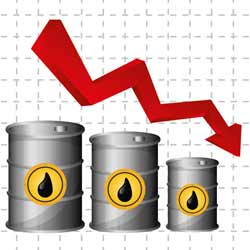Resource Analyst Jobs
Development Sector
Resource analysts will find jobs in many fields in the alternative energy sector, ranging from wind analyst to more comprehensive positions such as energy services analyst.

For some of these positions, you will need to be skilled in specific areas. For example as a wind analyst you will need to perform such tasks as auditing wind measurements from various sources. You may also be required to have knowledge concerning installation, maintenance and removal of equipment used in the production of wind energy. As an energy services analyst, you may be expected to have more general knowledge of these practices across a range of natural energy sectors, such as wind, solar and nuclear energy. A resource analyst’s duties also include analyzing eco-friendly energy alternatives using energy-modeling software programs, financial analysis and energy audits. Finally a resource analyst needs to be able to present this information clearly to clients.
Educational and Training Requirements
More comprehensive positions such as energy services analyst usually require a bachelor’s of science in engineering, business or a related field and it is preferable that you have proven experience in performing the expected duties. As you may have expected, should you wish to pursue a career as a research analyst in a more specific field, you will need to have an education that reflects a higher degree of specialization. As a solar energy resource analyst you must be familiar with the types of technology used in the field and a bachelor’s of science in engineering is often preferred.
Knowledge of photovoltaic solar modules and how they work is absolutely necessary. As a wind resource analyst, on the other hand, an education in the physical sciences, such as meteorology, is more important. This doesn’t mean that you are unable to apply for these positions if you have a broad degree in engineering; just keep in mind that experience in whichever field you choose is always necessary and will go a long way to landing you an interview and a job.
There is no certification board or special license required for most of resource analyst positions. The process of becoming eligible to qualify for the position of resource analyst is dependent on two things. First, you must have a degree in a relevant field, such as a BS in engineering or physical sciences. This can take anywhere from three to five years to earn depending on the program you choose. Often times these courses will provide you with connections necessary in order to partake in an internship program. This will help you gain the second thing you need to become a resource analyst – on-the-job experience. The knowledge and experience you receive throughout your education and internship will help you greatly when pursuing a job in the future.
Salary and Advancement Opportunities
Although the Bureau of Labor Statistics does not generally report on green energy positions, a comparable position is that of operations research analyst. The Bureau of Labor Statistics reports that operations research analysts earn an average salary of $74,220 per year. As with almost any position, however, you should not expect such a high salary when you first begin. You must have a significant amount of experience and have been employed as a resource analyst for a number of years before you can expect this kind of salary. Payscale.com reports that a resource analyst with one to four years of experience can make anywhere from $41,055 to $57,629. As you gain experience, your salary will reflect this: A resource analyst with 10 to 19 years of experience earns an average of $47,612 to $93,000 per year.
Many resource analysts have great potential to advance and gain employment in related fields which allow for greater diversity, more challenging projects and tasks and as a result, a higher income. Though in order to become a chemical engineer, for instance, you will need very specific training, there are many managerial jobs available to those who have the knowledge and experience a trained resource analyst has. There are positions that encompass a broader range of education and experience that a resource analyst may be qualified for, such as energy consultant.

